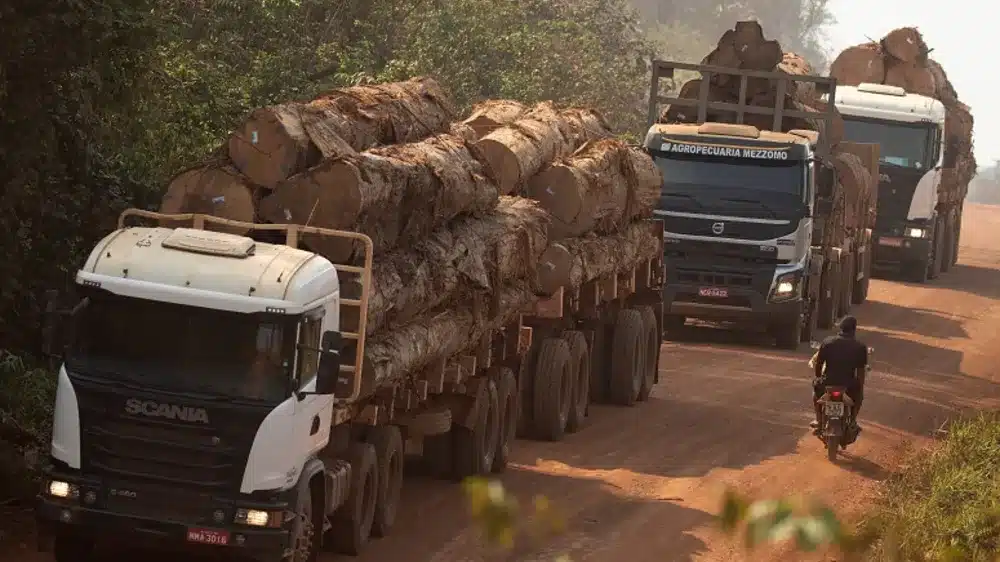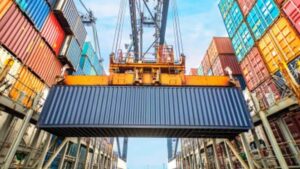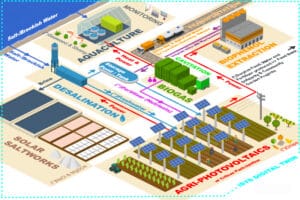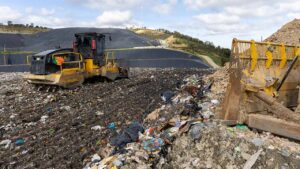Two Portuguese companies among 15 European offenders
Two Portuguese companies are among 15 in Europe alleged to have imported exotic Brazilian wood resulting from illegal deforestation in the Amazon, a British NGO has revealed.
The wood, of different varieties but mainly of the Ipê (Tabebuia) species – valued for its durability in luxury outdoor flooring (‘decking’) – is being extracted from unauthorised areas in tropical forests and marketed using false references to circumvent official controls, says the Environmental Investigation Agency (EIA) in a report released today.
Criticising importing companies – both European and North American – for not doing due diligence to ensure that the origin of the wood is legitimate, the agency stresses that most of the Brazilian sawmills and export companies involved already have a record of committing illegal offences.
“They didn’t do enough due diligence to eliminate the risk of the illegal origin of this timber that they imported in order to comply with European Union legislation, which prohibits the import of illegal timber,” Christopher Moye, one of the authors of the report, tells Lusa news agency.
According to Moye, all the information about the origin of the wood, the embargoes in force on certain areas decreed by the Brazilian Environmental Institute and fines imposed on exporters by IBAMA (the Brazilian Institute for the Environment and Renewable Natural Resources) is openly available on the Internet.
“Everyone knows that (the state of) Pará is a high-risk area in terms of the extraction and export of illegal timber,” he said.
The EIA investigation, conducted in collaboration with the Centre for Climate Crime Analysis (CCCA), focused on the northern Brazilian state of Pará.
Cross-referencing publicly available data with satellite images and industry sources on the ground, investigators found five illegal logging operations that export timber to the United States, the European Union (EU), Canada and South Africa.
The report shows how the timber is registered as having originated in licensed logging areas, but satellite images show either no logging having taken place or insufficient logging to justify volumes claimed.
In other cases, timber has been extracted from sites with embargoes in place – including illegal deforestation for gold extraction.
Some Brazilian companies are said to have inflated the quantities of felled ipê in order to ‘’launder‘’ wood cut elsewhere.
Other illegal practices have also been identified, such as bribing inspectors to speed up certificates and tamper with inspections.
According to the EIA, between 2021 and 2024, more than 53,000 cubic metres of wood – enough to fill 1,828 shipping containers – has been extracted (felled) using these schemes.
The report identifies around 19 sawmills, 16 Brazilian exporters and 30 American and European importers in the supply chains in question, including Portuguese companies Lumber Unipessoal and Playmade Comércio de Madeiras.
Belgium, Denmark, France, Italy and the Netherlands are other European countries with companies allegedly compromised.
The manager of Lumber, Gabriel Torres da Costa, has told Lusa that his company’s “processes are scrutinised by the national bodies (including the ICNF forestry institute), which have been increasingly active in their role of controlling timber imports” and that the company has “a well-defined timber purchasing policy and a clear ethical guide”.
He assured Lumber has implemented “increasingly strict purchasing practices” that have “led them to reduce the number of suppliers, reduce the area of intervention and exclude shipping ports” in order to mitigate the risk of buying illegally sourced wood.
Playmade has reserved comment until after the report has been analysed.
Despite accepting that procedures for identifying irregularities are not simple, Moye maintains that checks can be carried out in a few minutes.
He cites an EUTR Expert Group – a body that advises EU regulators and industry – which published guidelines in 2019 and 2020 for importers of high-risk timber. However, he admits that “it is very easy to lie on documents” that make up the traceability of the wood, and that reliability must be controlled in Brazil.
For now, the EIA says it intends to lodge a protest with “the appropriate authorities in Europe, including Portugal, to investigate the (importing) companies and see what kind of due diligence they have done with regard to the suppliers involved”.
The organisation urges Brazilian authorities to tighten supervision of its timber sector at state and federal level and to strengthen measures to prevent money laundering, fraud and corruption.
From America, the organisation is asking for more efforts to comply with its legislation on the matter – and from the EU it is calling for deforestation regulation to be implemented by the end of the year.
The Logging Monitoring System (Simex) indicated in October that the area of illegal logging in the Amazon grew by 19% in one year, from 106,000 hectares between August 2021 and July 2022 to 126,000 hectares between August 2022 and July 2023.
Most of the illegal logging (71%) took place on private rural properties, but only a small fraction of the owners are held responsible.
In addition to illegal logging, cattle ranching and soya cultivation are the other main causes of deforestation in the Amazon.
Source information: LUSA




















